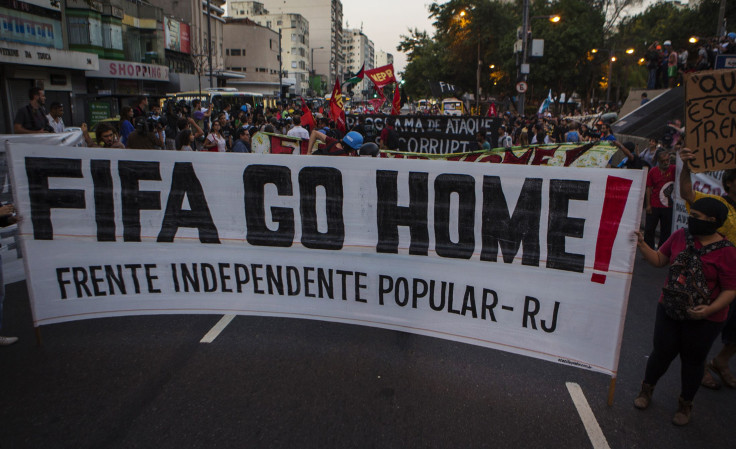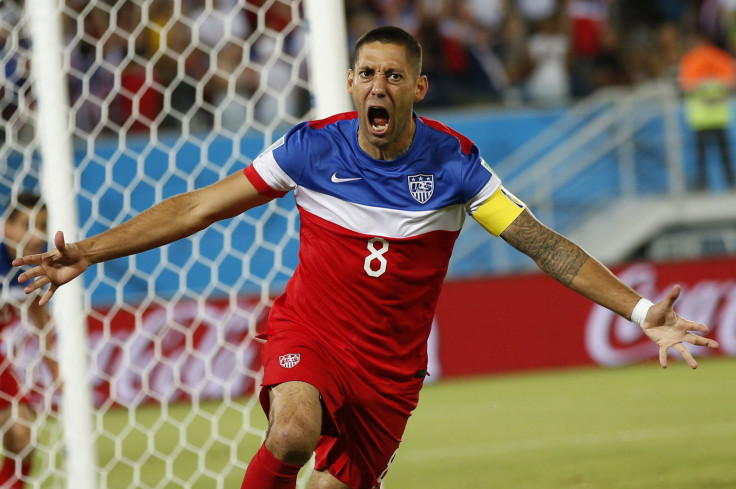Brazilian Protesters Burn US Flag As Americans Outshine Ghana At The World Cup

In a demonstration against excessive government spending on the World Cup, a group of protesters burned the U.S. flag in the northern Brazilian city of Natal, a few hours before the American team’s first-round game against Ghana on Monday evening.
The protesters, who also burned a FIFA flag, were headed for the Estadio das Dunas where both teams were set to take on each other in their first game in the 2014 World Cup. The small demonstration, which included only a few dozen people, was stopped by security officers nearly a mile from the stadium’s gates, Associated Press reported. Police arrested several people during the demonstration and managed to keep protesters well away from the stadium where Vice President Joe Biden was present to watch the game, which the U.S. won 2-1.

Clint Dempsey scored the first goal for the U.S. only 30 seconds after kick-off. The American team, which had lost to Ghana twice before in previous World Cups, managed to hold on to its lead until Andre Ayew tied the score for Ghana eight minutes before the final whistle. However, John Brooks, a second-half substitute for the U.S., scored another goal four minutes later to secure a crucial victory for his team.
In the southern Brazilian city of Curitiba, 14 people were arrested during another protest before a game between Iran and Nigeria. According to police, a group of protesters broke windows of banks and stores after an anti-World Cup march was stopped by police near the city's Arena da Baixada stadium, Reuters reported.
According to a Pew Research survey released before the World Cup started, nearly 60 percent of Brazilians are against their country's decision to host the soccer tournament, arguing that the money would have been better spent on improving Brazil’s failing infrastructure and public services. To build and renovate stadiums for the month-long tournament, Brazil spent nearly $3.6 billion, which is almost four times the amount the government proposed in 2007, Bloomberg reported.
© Copyright IBTimes 2025. All rights reserved.






















